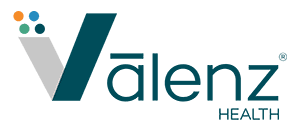Four Solutions to Support Employees’ Mental Health During COVID-19
This article is third in our series examining how the self-insured industry can respond to the long-term effects of COVID-19 on member health.
The COVID-19 pandemic has impacted almost every part of our daily lives, including physical, financial and emotional health. As the pandemic continues to worsen, we are gaining greater visibility into emerging mental health issues among the U.S. population. Consider these recent statistics:
- According to a Kaiser Family Foundation (KFF) health tracking poll in July, 53 percent of U.S. adults say COVID-related stress has negatively affected their mental health – up from 39 percent in May.
- Census Bureau surveys have found up to 40 percent of U.S. adults struggling with anxiety, depressive disorder or substance abuse since the pandemic hit.
- More than half of behavioral health organizations are seeing higher demand for services, according to the National Council for Behavioral Health – but capacity is diminishing.
- In addition, KFF found most U.S. adults think the worst of the pandemic is yet to come.
Mental health claims within our ecosystem are significantly on the rise, and clients are reporting increased concern about pandemic-related effects on their employees – adding new life to discussion about modifying care delivery models. The healthcare industry is acknowledging the significant correlations between physical and mental health, traditionally cared for as separate conditions. Integrated care solutions that treat the whole person could deliver improved outcomes with less expense.
To that end, in the face of continuing upheaval and stress from COVID-19, what resources can self-insured employers offer to support their employees? Here are four solutions to consider:
1: Use data to identify members at risk.
Employers are increasingly turning to data to identify employees at risk and proactively offering them the resources they need. Today’s technologies are providing new insights by leveraging real world data (RWD), which refers to health-related information collected and reported by diverse sources on patient health status, population trends and the routine delivery of care.
Within an ecosystem like ours, RWD come from multiple sources including electronic medical and health records, claims and case management databases – even from employees themselves. We anticipate self-assessments, social media and health-related wearables as emerging data sources that will soon be added into the mix to more precisely predict those in need of behavioral health services.
2: Offer a care management program with personalized support and navigation.
Poor mental health and behavioral choices make physical health and chronic care conditions more challenging and expensive to manage. To meet the patient’s physical and mental health needs, comprehensive care management involves the active monitoring of behavioral health to help prevent serious health events and navigate care across multiple providers and settings.
A full-service care management program with a nurse navigator as a central point of contact can personalize its services for employees who may benefit from more comprehensive attention. As they coordinate care and guide patients to an individualized treatment plan for better behavioral health, nurse case managers can help relieve anxiety and make at-risk patients feel more in control and proactively managing their health.
3: Ensure networks provide access to mental health services with telehealth options.
Demand for behavioral health services is expected to stay high for the foreseeable future. According to the National Alliance on Mental Illness (NAMI), however, many people do not have the same access to mental health specialists as they do for other medical providers – nor do they have as many available options. When they can find a mental health professional, they may be forced to go out of network to receive treatment.
This leads to higher out-of-pocket costs for mental health care compared with other types of primary or specialty care. When people face increased expenses, it may lead to seeking less care — or going without any care at all. Access to mental health services, clearly communicated to employees, is key to seeking and receiving treatment, which in turn improves productivity and retention.
A coordinated care team is better able to meet both the mental and physical health needs of the patient with improved outcomes. Along those lines, the American Medical Association has established the Behavioral Health Integration (BHI) Collaborative with seven other physician associations to promote the integration of behavioral and mental health care into primary care practices. Such steps are critical for greater access and a robust telemedicine plan that addresses the issue of fewer available mental health providers by incorporating primary care into the solution.
4: Include an Employee Assistance Program in your benefits package.
People are struggling more than ever in the wake of COVID-19. An Employee Assistance Program (EAP) provides confidential support for numerous concerns, including mental health issues and personal, family or work problems. Counselors and other specialists can assist with stress, depression, substance abuse or financial issues. Identify an EAP that responds quickly when employees reach out.
The benefits of an EAP make such a program a worthy investment. NAMI estimates that untreated mental illness costs the United States up to $193 billion annually in lost productivity.
When employees are able to successfully manage their health, employers can expect to see improved job performance, productivity, engagement and retention; while minimizing the impact to their bottom line due to turnover, absenteeism, increased mental health services and higher insurance costs.
Data-driven solutions
The COVID-19 pandemic has forced all of us to find new solutions for improved health and access to the right care delivery. Through the mental, physical and financial implications of this global health crisis, Valenz remains committed to delivering on our core promise of smarter, better, faster healthcare – so our clients and their employees are strong, vigorous and healthy.
***
Amy Gasbarro is Chief Operating Officer of Vālenz™, one of the nation’s leading data-driven, medical cost containment and care management organizations offering an ecosystem of expanded data and service solutions to support the self-insured industry.




